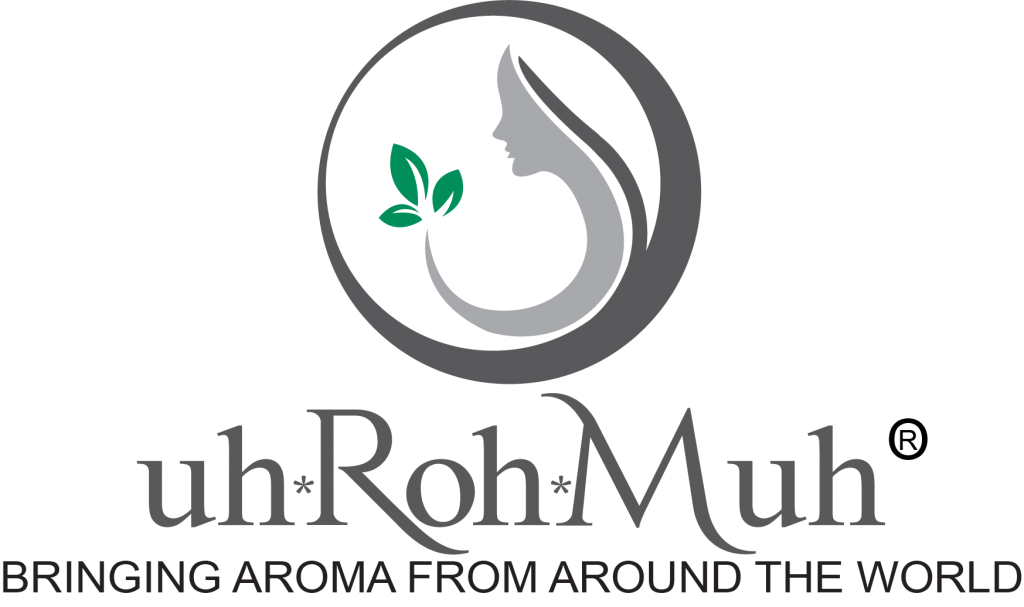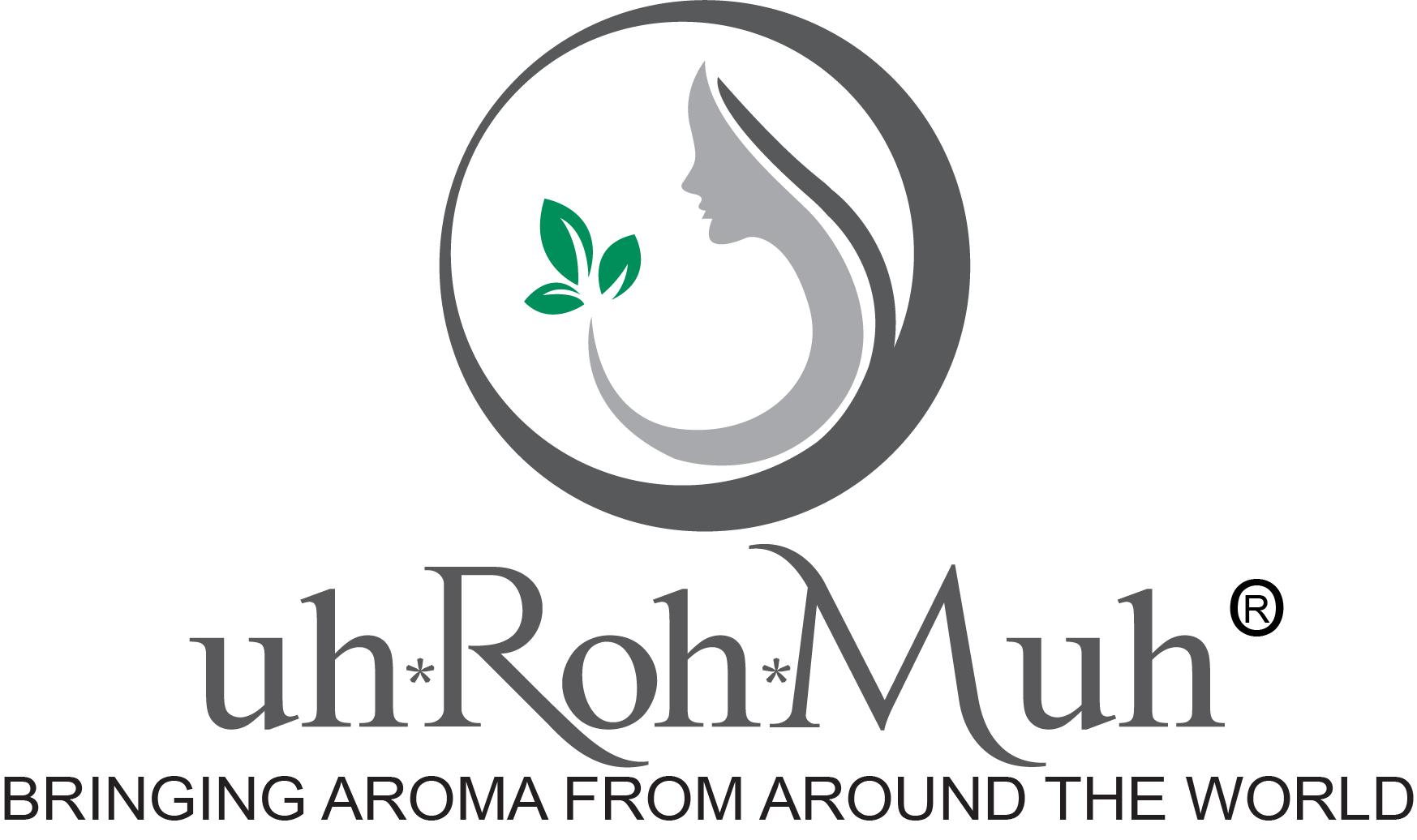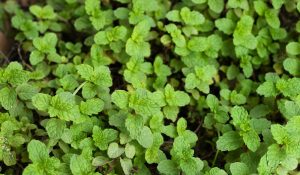Cornmint Essential Oil
Cornmint essential oil is extracted from cornmint’s fresh leaves and flowering branches through steam distillation. The primary chemical constituent of cornmint oil is menthol. This compound gives the oil its distinctively fresh and minty flavor. Besides menthol, cornmint harbors significant quantities of limonene and pinene, both essential chemicals in aromatherapy.
Cornmint (Mentha arvensis), also known as Japanese mint, is a perennial herb from the Lamiaceae plant family. It is native to Eurasia and North America. The herb grows to a height of 10-30 centimeters, with purple flowers that bloom in July and August. Its small leaves are intensely aromatic when crushed.
Today, cornmint is commonly used as a domestic herb. It is revered for its antiseptic properties and various health benefits. Its leaves are also used for flavoring cooked food and vegetable salads. Interestingly, cornmint oil can be substituted for peppermint oil because it has a similar menthol scent. These two oils also have several common uses.
Cornmint oil blends well with basil, lavender, cypress, rosemary, lemon, and tea tree essential oils.
Cornmint Essential oil in History
The long history of cornmint has its roots in ancient Greek folklore and ancient Chinese medicinal texts. Historically, cornmint was a remedy for diseases caused by dampness and colds like sore throats and head colds. It was also used to treat problems like fevers, measles, digestive issues, and nausea in pregnant women.
Cornmint Essential Oil Uses
Cornmint oil is common in the aromatherapy world. It is revered for its anticoagulant, antiseptic, antitussive, anti-inflammatory, antibacterial, and anti-microbial purposes. It is also an anesthetic, antiseptic, stimulant, and antispasmodic.
Below are some of the most notable uses of Cornmint oil
1. Skincare
Cornmint oil is known for its calming and nourishing effect on the skin. When used as an exfoliator, it cleans out pores, dries pimples, and fades dark spots, leaving your skin with an all-round brighter complexion.
Additionally, the oil’s anti-microbial properties make it effective against microbe-related skin conditions like acne, dermatitis, eczema, seborrhea, and ringworm.
To clean up acne and improve skin appearance, mix two drops of Cornmint oil with a cup of coconut oil and a cup of sugar and apply as a sugar scrub.
2. Relieves Pain
Cornmint oil has potent analgesic and anti-inflammatory properties, which make it an effective natural remedy for headaches, joints, and muscular pains. As a result, cornmint is a desirable oil for massage blends that target sports-related soreness, arthritis, and rheumatic conditions.
In case of muscle aches and pains, mix cornmint oil with a carrier oil and apply to the affected area for soothing effects.
3. Improves Respiratory Health
Cornmint essential oil is useful for respiratory concerns and can be a handy essential oil during the winter season. An ambient diffusion of the oil is good for flu, colds, coughing, and congestion. You can also add a few drops of cornmint oil to a bowl of hot water and inhale the steam for relief.
4. Treats appetite loss
Cornmint oil assists with the digestion process and relieves digestion discomfort such as bloating, stomach pain, and constipation. Moreover, it improves appetite, making it an ideal option for people suffering from appetite loss.
To improve digestion and clear constipation, mix Cornmint oil with a carrier oil like coconut oil, almond oil, or jojoba and massage the lower abdomen. Inhaling the sweet aroma from the bottle can also help improve appetite.
5. Relieves stress
The refreshing and calming aroma of Cornmint oil can offer great help in times of anxiety, stress, distress, and negative thoughts. It turns such moments into serene ones by its uplifting, energizing, and cooling effects. Aromatherapists also recommend this oil as a treatment for insomnia.
To improve your mood, use a few drops of Cornmint essential oil in a room diffuser, or simply open your bottle of the oil and inhale once or twice.
Contraindications
Cornmint essential oil is only meant for external use. Ingestion, especially in large doses, may lead to harmful side effects.
Cornmint essential oil is best used with a carrier oil for direct skin contact. People with sensitive skin should perform a skin patch test to check for any allergic reactions. It is also essential to avoid applications near sensitive areas like the eyes and ears.
This oil must not be used together with any anticoagulant medication because it can hasten its effects and cause excessive bleeding. Patients with gastroesophageal reflux disease (GERD) and those with cholestasis should also avoid cornmint oil.
Cornmint essential oil is generally not recommended for pregnant and nursing women because its impact on developing fetuses and infants has not been studied conclusively.
Always consult a certified medical practitioner before using cornmint on your children or the elderly. Moreover, take extra care of the recommended ratios when using it on kids to avoid severe skin irritation.
Lastly, cornmint essential oil is considered toxic for dogs and cats. It is crucial to consult your primary care veterinarian for advice before exposing your pet to this oil.
Disclaimer
These statements have not been evaluated by the Food and Drug Administration. This product is not intended to diagnose, treat, cure or prevent any disease. If you are pregnant, nursing, taking medication, or have a medical condition, consult your physician before using this product.
Sources
1.https://www.aromaweb.com/essential-oils/cornmint-oil.asp
2.https://www.rockymountainoils.com/cornmint.html
3.https://www.lgbotanicals.com/Cornmint-Wild-Mint-Essential-Oil-_p_521.htm
4.http://www.luontoportti.com/suomi/en/kukkakasvit/corn-mint
5.https://www.naturespot.org.uk/species/corn-mint
6.http://www.naturalmedicinalherbs.net/herbs/m/mentha-arvensis=corn-mint.php
7.https://www.sciencedirect.com/topics/agricultural-and-biological-sciences/mentha-arvensis
8.https://www.aromatics.com/products/corn-mint-wild-mint-essential-oil
10.https://www.nhrorganicoils.com/uploads/20180706142637e_Cornmint_SDS.pdf




You must be logged in to post a comment.